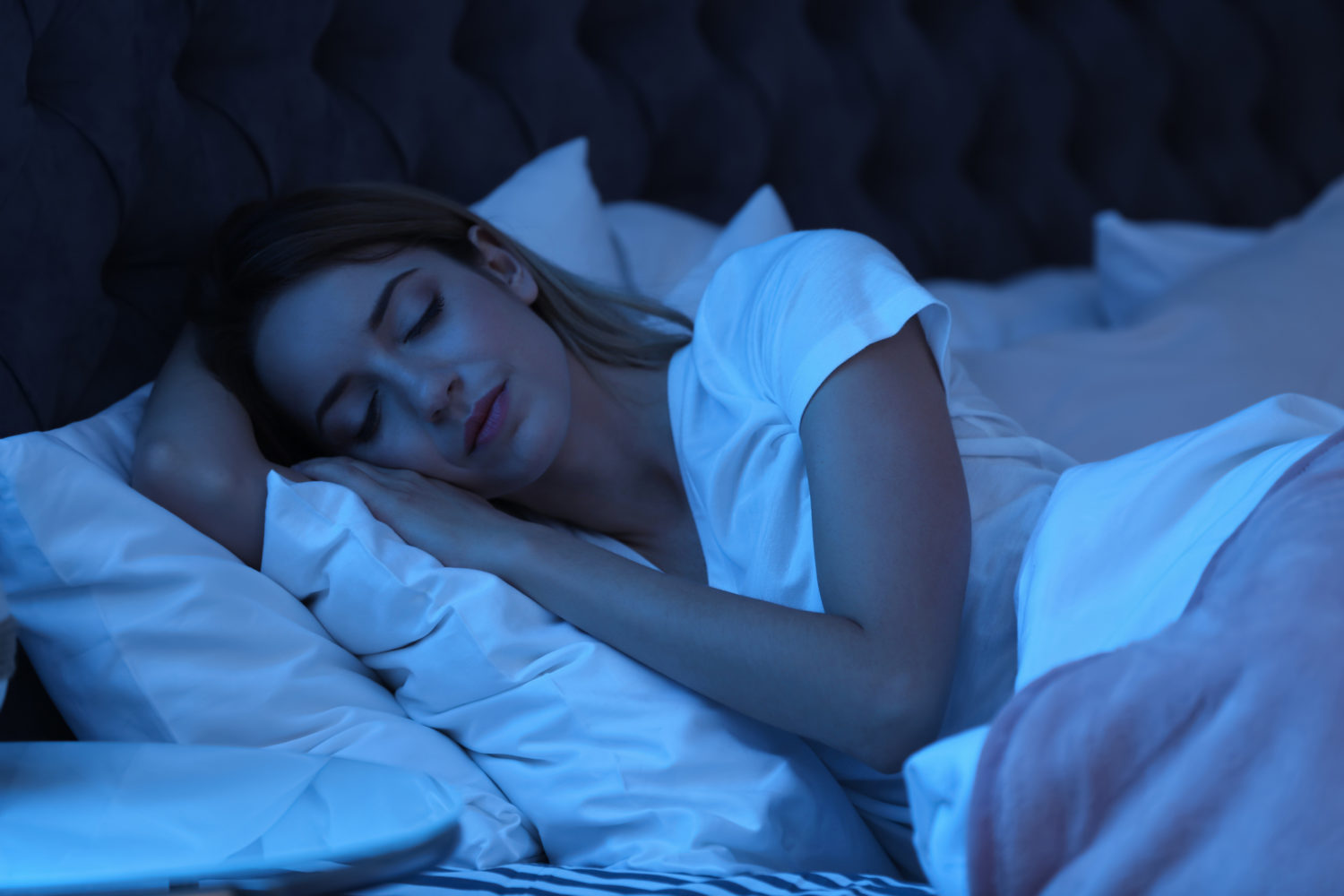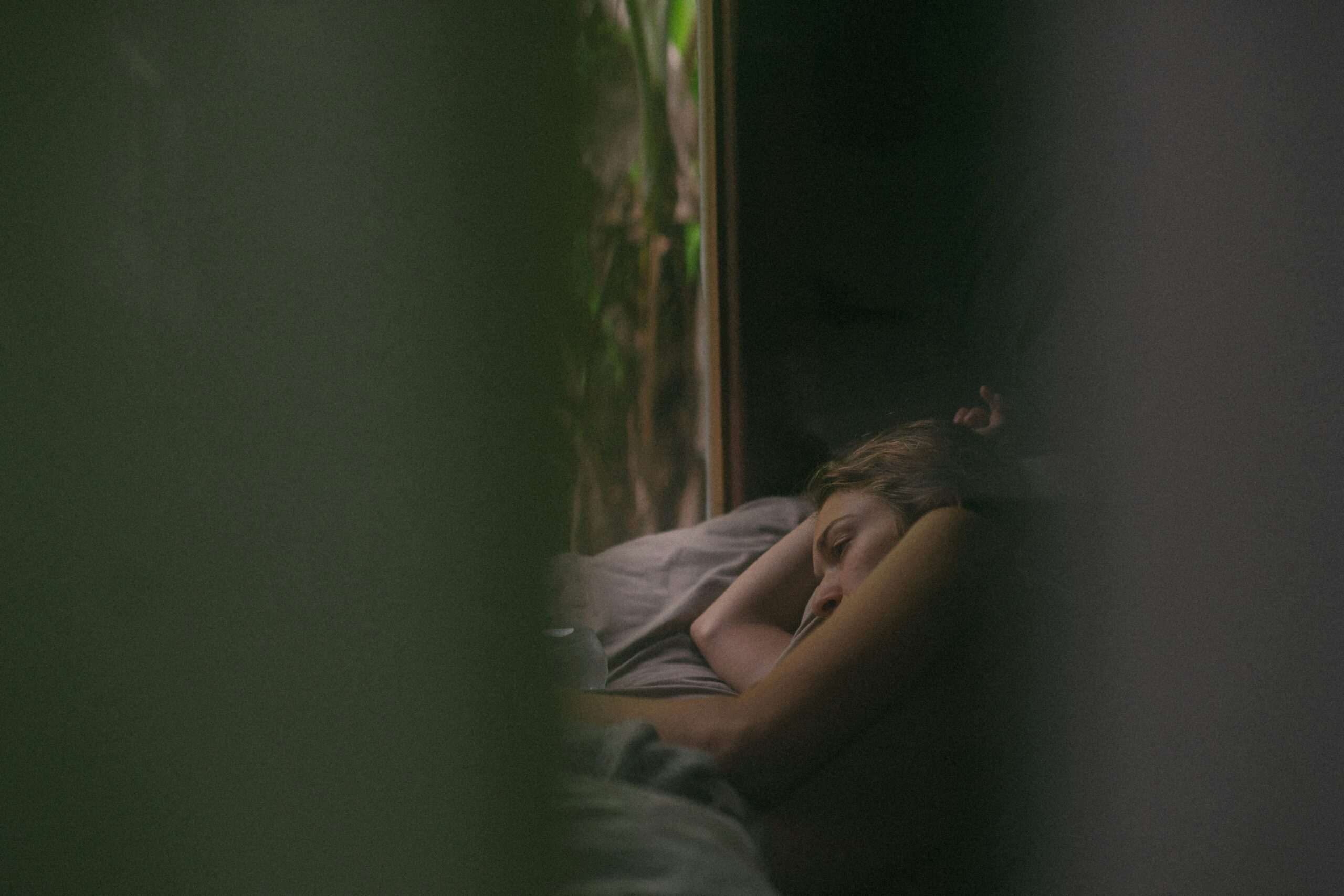
- January 27, 2025
- By
Sleep and Mental Health: The Connection
When we wake up after a night of poor sleep, we are tired, lethargic, and grumpy. But did you know there is a connection between sleep and your mental health? It turns out that missing a few winks could have an impact on your overall mental health and well-being.
Sleep has been proven to help our body recover from illness, and injury, and is even required to transfer memories from working memory to long-term memory. When we don’t get enough sleep, we feel foggy-brained the next day. Sleep is necessary to focus on mental tasks and complete them successfully.
Typically, after one night of bad sleep, we recover the following night. However, continuous poor sleep is a rising problem—up to 70 million people in the US and approximately 45 million people in Europe have a chronic sleep disorder that impacts daily functioning and health (Medic et al, 1). Because of this, scientists, doctors, and health experts are researching sleep hygiene, which includes all factors that promote arousal or disrupt the normal balance of the sleep-wake cycle (Alanazi, 1).
What Does Poor Sleep Look Like?
For adults, insufficient sleep can be characterized as sleep durations shorter than the recommended 7+ hours or poor sleep quality with or without the presence of a sleep disorder (Peach et al, 2). Consistent lack of sleep or poor sleep quality has been proven to be a predictor for the development of depression and poor mental health.
Poor mental health is described as a state of well-being whereby a person is aware of their abilities, can cope with the normal stresses of life, is able to work productively, and can contribute to their community (Peach et al, 2). In one study, poor sleep quality was associated with greater depressive symptoms and lower subjective well-being. One theory suggests that sufficient sleep is essential in providing the energy needed to manage stress and regulate emotions (Peach et al, 8).
This explains why we tend to get short-tempered and cranky when we haven’t had enough sleep! If a pattern of poor sleep continues, you may feel constantly tired and frustrated, which can lead to negative well-being and even hopelessness. Adequate rest is critical for optimal brain function to manage stress and emotions effectively.
Factors Contributing to Poor Sleep
In today’s society, many adults are constantly on the go, often continuing right up until bedtime. Sleep hygiene isn’t just about what time you go to bed. Contributing factors include:
- Taking naps during the day
- Not having a regular sleep schedule that includes 7+ hours per night
- Drinking alcohol, caffeine, or using nicotine late in the evening
- Eating too much or exercising late in the evening
- Uncomfortable sleeping conditions such as a poor mattress or pillow, incorrect temperature, or noise levels
How to Ensure Quality Sleep
Consider these tips to improve your sleep routine:
- Don’t eat a full meal before bedtime.
- Limit liquids before bedtime to avoid nighttime disruptions.
- Avoid using caffeine, nicotine, or other stimulants in the evening.
- If exercise keeps you awake, avoid working out late in the evening.
- Assess your bed and bedroom conditions—ensure they support restful sleep.
Avoiding the Napping Trap
When people don’t sleep well at night and feel tired during the day, they often nap. While it might seem logical to catch up on missed sleep, napping during the day can backfire. It can make it harder to fall asleep at night, further disrupting the cycle of poor sleep.
If you feel sleepy in the afternoon, instead of napping, try going for a walk, especially outside in fresh air. A change of scenery can recharge your brain, help avoid mid-afternoon naps, and improve productivity. This strategy also helps reduce the need for an afternoon coffee, which can interfere with sleep later on.
Final Thoughts
Sleep is vital for our body to rest and recover—we were made to recharge! Consistently poor sleep can increase the risk of depressive symptoms and negative well-being. If you notice an increase in depressive symptoms or negative thoughts, seek immediate counseling.
By examining your pre-bedtime routine and assessing your sleep environment, you can increase your chances of catching 40 winks or more every night.
References
- Alanazi, Eman M., et al. "Sleep Hygiene Practices and Its Impact on Mental Health and Functional Performance among Adults in Tabuk City: A Cross-Sectional Study." Cureus, 16 Mar. 2016, pp. 1-11.
- Medic, Goran, et al. "Short- and Long-Term Health Consequences of Sleep Disruption." Nature and Science of Sleep, 19 May 2017, pp. 1-11.
- Peach, Hannah, et al. "Sleep Hygiene and Sleep Quality as Predictors of Positive and Negative Dimensions of Mental Health in College Students." Cogent Psychology, vol. 3, 8 Apr. 2016, pp. 1-9.
You Might Also Like

- February 3, 2025
- By
Sleep is more than just rest; it’s the body’s way of repairing, recharging, and preparing for the day ahead. While it may feel like a simple nightly ritual, the quality of your sleep is deeply influenced by what’s happening in your gut and what’s on your plate. Nutrition plays a pivotal role in fostering both […]
Read More
- January 20, 2025
- By
Why Sleep Hygiene Matters Sleep is essential to our health and well-being, yet many people struggle to get quality rest. One of the most effective ways to improve your sleep is by practicing good sleep hygiene. Sleep hygiene refers to habits and practices that promote consistent, high-quality sleep. Understanding how to wind down before bed […]
Read MoreNewsletter Sign up
Receive exciting updates from NouraLife, don't worry we only send meaningful emails.
